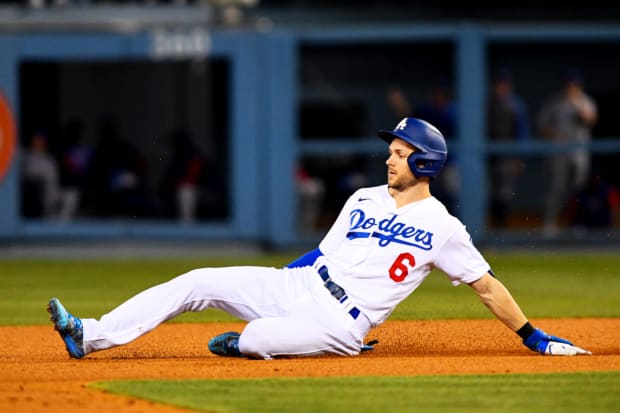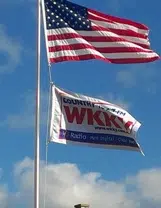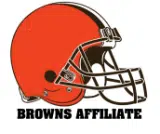Philadelphia signed one of MLB’s most electric players and underscored its commitment to winning, no matter the cost.
SAN DIEGO — The Phillies’ postseason run was sprinkled with reminders that no one had expected them to be there: Such was the subtext for every proclamation of a “team of destiny” or mention of their original playoff seed or description of how they started the year. But the fact remained that this was a very good team, and it had been deliberately built to be a good team, even if it took some time for that group of talent to flourish.
Philadelphia underscored that fact on Monday—by signing infielder Trea Turner, one of the biggest free agents on the market, to an 11-year, $300-million deal. The arrangement includes a full no-trade clause and no opt-outs. The move jumpstarts this winter’s crowded shortstop market, and it brings one of the most electric players in the game to Philadelphia, where he seems positioned to thrive.

Jonathan Hui/USA TODAY Sports
This is an appropriately huge contract for a hugely talented player. While Turner is best known for his speed (and his ultra-smooth slides), he’s also a force at the plate and has made considerable strides on defense since the start of his career. In other words, he’s one of the most well-rounded players in the game, and any team should have been happy to land him. But there was an especially strong fit with the Phillies. They had an opening in the middle of their infield after declining a $17 million team option on second baseman Jean Segura—which means they can move last year’s rookie shortstop, Bryson Stott, over to second to allow Turner to play at short. (Stott, for his part, seems very excited about his new double-play partner.) And Turner’s fit with the Phillies goes beyond his defensive position.
He also gives them a strong option for a leadoff hitter. While Kyle Schwarber filled the role for the team admirably last year, Turner’s skill set offers a far more natural fit, which should give them more flexibility with the rest of the lineup. He’s one of the best stolen-base threats in the game—no one has stolen more bases (228) than Turner since 2016—which fits well on a club that was already top five in baseball in steals last year. And the deal reunites Turner with two key people from his previous tenure with the Nationals: Bryce Harper, now the centerpiece of the offense, and Kyle Long, the hitting coach whom Turner has credited with revamping his swing to generate more power. In short, this deal takes a club that came within two wins of a championship a few months ago, and it offers a perfect fit to make it even stronger.
Turner also represents the first domino to fall on the shortstop market. He was just one of four high-end free agents at the position this winter, with Carlos Correa, Xander Bogaerts and Dansby Swanson still available. Turner was generally regarded as the most likely to grab the biggest contract out of this group, but it’s a very, very small gap between him and Correa, and Bogaerts and Swanson aren’t much further behind. By signing first, Turner has set the bar high for the rest of this shortstop class.
Of course, with any lengthy deal, there are naturally questions about what it will look like on the back end. That especially goes for Turner, whose most notable asset is his speed, which is not a skill set that ages particularly well. He turns 30 next June, meaning the deal will run until he is 41, and the fact that a long-term, big-money deal is already on the books with this team can make those concerns seem more pressing. (Harper’s 13-year, $330-million contract with the Phillies runs through 2031.) But there are two factors to consider here. First, this deal is not backloaded. The financial commitment is spread evenly across the decade—$27.27 million per season—which provides more flexibility and room to maneuver down the line than would be the case with a more lopsided contract. Second? This deal is primarily about winning now. There’s plenty of time for the Phillies to adjust and shape their roster before they have to reckon with the reality of aging players on big contracts. A smart front office—and this is one—should be able to do that. In the meantime? There’s a lot to enjoy here.
More MLB Coverage:
• Justin Verlander Is an Upgrade Over Jacob deGrom for the Mets
• The Mets Had No Choice but to Sign Justin Verlander
• Jacob deGrom’s Deal Opens MLB’s Free-Agency Spigot
• Jacob deGrom Is Worth the Risk for the Rangers
• Baseball Bargains: Five Underrated Free Agents Still Available



















